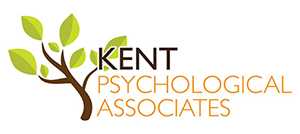I can’t tell you how many times I have heard people give the advice to “follow your heart” when plummeting into new relationships or deciding to continue in difficult ones. I’m not going to lie, as a therapist, I really despise this advice. It is innocent enough and I’m sure those behind the statement have only the best intentions, however our minds are powerful tools that often can make much more rational decisions compared to those driven by emotion alone. I find that balance between heart and mind are essential to making many important life decisions.
We should never ignore our emotions, especially when it comes to relationships, although there is a time and a place to allow our decisions to arise from our emotions. Take for example sex. When a person orgasms, Oxytocin is released into the body and a euphoric sensation ensues. Oxytocin has been dubbed the “hormone of love and bonding.” It is the hormone secreted during pregnancy and breastfeeding, which studies have found to play a vital role in mother-infant bonding.
During the initial phases of a relationship hormones play a large role in building attachments. This euphoric feeling early in a relationship can cause a person to potentially miss or negate red flags early on. The more involved in a relationship a person becomes, it is not abnormal to move to a different phase where there is not the excitement there once was. A deeper love is often a different love. This again can be confusing to some who feel that they should experience the same excitement they had when they first met their significant other. For others, red flags may have been missed during the period of intense highs and euphoria, and they now focus on the past and what they had with their partner in the beginning – “but I know the person they can be… I know who they are.”
Make no mistake, emotions are important. If they go unrecognized or addressed, you could possibly keep yourself from becoming emotionally vulnerable enough to support a healthy relationship. On the other hand, if you depend solely on your emotions to make your relational decisions, you could end up in unhealthy relationships that may become codependent.
How to Find Balance
Pay attention to your emotions, identify and accept them. Your emotions should never be ignored, but they should be assessed. Do your thoughts and emotions match, or do they appear contradictory? If so, why do you think that is? Does it concern you, and if it does, are you openly willing to share this with your partner? If you aren’t, this may be something you want to further explore. Journal or talk out your feelings and struggles. Whatever you do, you need to identify these thoughts and emotions to properly and effectively assess them. Look at what you are telling yourself as well as what observations you have made based on behaviors within your relationship. If you have concerns or questions, open up to your partner about them.
Too often I see individuals withhold information for fear that their feelings or thoughts will push away their partner. My response is, and always has been, to share your emotions openly. If your partner is unwilling to work through your feelings with you, then perhaps this is not the relationship you bargained for. Better to figure this out early on than later. Relationships can be tricky. They involve a lot of work and require you to pay attention to your wants, needs, feelings, and thoughts. The next time you find yourself making difficult decisions regarding your relationship, use both your mind and your heart.

